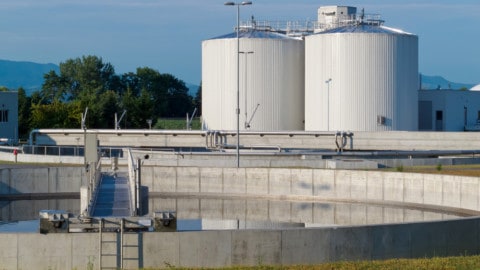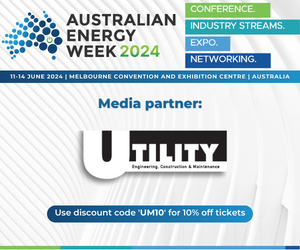by Siobhan Day, Assistant Editor, Utility magazine
Sitting on a beach in Ecuador, two friends came up with an idea that they believed would solve the energy trilemma. The concept was quite simple: offer consumers real-time, wholesale energy prices, and promote the use of renewables and off-peak energy use to improve grid reliability. Utility Assistant Editor, Siobhan Day, spoke with Amber Electric Co-Founder, Dan Adams, to discuss his brainchild – an energy company that is set to disrupt the industry by offering consumers more autonomy in when and how they use energy.
Co-Founders of Amber Electric, Dan Adams and Chris Thompson, met while working at Boston Consulting Group. With a shared passion for renewable energy and customer-centric digital technologies, they founded the ‘new-age’ energy company back in December 2017.
Less than 12 months later, Amber Electric was launched to customers in Sydney in August 2018. In October 2018, Chris finished a 12-week accelerator program at Startmate and won Startup Vic’s Impact Pitch Night.
Now servicing South Australia and Sydney, Amber Electric has seen tremendous investment in recent months, making it well positioned to scale its product and service offerings right up the east coast of Australia.
Affordability
“In every other market you think about, it is a two-sided market where both buyers and sellers are responding to a price,” Mr Adams said.
“But the traditional energy market is one-sided, where suppliers see the wholesale price, but customers don’t, so they have no opportunity to respond to it.”
Amber Electric is able to bypass this traditional model and offer customers direct access to real-time wholesale energy prices at a monthly subscription fee of $10.
Through a simple online application, customers are able to see what the wholesale electricity price is at that moment in time, as well as a forecast for the next 12 hours.
The app also offers customers information on their daily, weekly and monthly energy consumption, as well as warnings for when wholesale prices are likely to spike.
“There are times when energy prices are more expensive, and we see those as an opportunity. Because they often happen in January, particularly on those hot days, we send notifications to customers recommending they go to the movies that afternoon,” Mr Adams said.
“Those high-price events really are an opportunity to dramatically increase savings. If they can engage with those and reduce their consumption for a few hours a year, they can save significantly more.
“The other side of that is wholesale prices are actually negative sometimes. Sometimes there’s surplus renewables in the grid, and we’ll actually pay people to use electricity – which people find pretty hard to believe.”
Environmental sustainability
Not only does Amber Electric offer customers the chance to be paid to use energy, but the company also provides information on the percentage of renewables in the grid so customers can shift some of their usage to the times when there are lots of renewables available.
“Because renewables are now the cheapest form of power, there’s this sort of beautiful win/win where customers are saving money and supporting the transition to more renewable energy at the same time,” Mr Adams said.
“Customers can look at the app and say, ‘I’m going to do my washing and drying at 3pm because I know there’s going to be a lot of solar in the grid and the wholesale prices are going to be cheap, so I can save money and support renewables’.
“It gives customers that bit of insight into how they can manage their energy use in a way that is going to help them the most, while benefitting the planet.”
Reliability
The ability to shift energy consumption away from peak periods is not just reducing costs for the consumer and creating more demand for renewables – it is also increasing the reliability of the grid.
“I think in consumers’ minds there’s this idea that they can save money and help the environment by using less power, but it’s quite a new concept that when you use power matters even more,” Mr Adams said.
“Sometimes it makes sense to use more power because there is a lot of renewables in the grid. Sometimes it’s expensive and it makes sense to use less when it’s coming from coal, and you can increase your environmental impact by using less at those times.
“While all consumers are interested in reducing energy costs, there are a lot of customers that are very engaged and plan their life around using power when it’s cheap and renewable.”
Digitising energy
Dan and Chris aren’t really the type to stick to tradition, so it’s no surprise that their plans for Amber Electric are quite different from those of traditional companies.
“There’s two big trends happening in the energy market. One is the transition to renewables, and the other is a sort of digitisation of energy at the household level, with smart devices coming into people’s homes that can be optimised and controlled,” Mr Adams said.
“We think there’s a big opportunity to merge these two trends and start to use those devices in people’s homes to enable that transition to renewable energy.”
They will offer additional services, like optimising household batteries, electric vehicle chargers and other smart devices to run when wholesale prices are at their lowest levels, helping customers change their behaviour without much
effort involved.
“Devices in customers’ homes are really leveraged to enable the transition to renewables and reduce the cost to customers because they can reduce the overall cost of running the network by reducing demand at those peak times,” Mr Adams said.
“The Amber model is just giving customers access to the wholesale price and then helping them optimise as many devices as they want.
“This way customers aren’t restricted to one device, they can have as many devices as they want from as many different suppliers as they want, and we can optimise it for them, or they can have the device manufacturer optimise it.
“The digitisation of energy is also the decentralisation of energy. Customers are taking more ownership with solar panels, batteries and EVs, and starting to be active participants in the energy market, rather than just inactive consumers of it.
“It is an exciting time when what is in the customers’ interest is also in the interest of the planet.”















